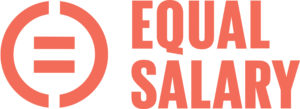The end of a year is a good time to reflect on the last 12 months. For many, 2021 was not the year they had hoped for. Far from a giant leap forward, it was just as disjointed and uncertain as the early months of 2020 when the Pandemic was only just being realised.
However, some have made gains in the battle for equality in the workplace. In this roundup article, we shine a light on the good and the bad from the past year.
Our top good news stories:
Switzerland makes large companies adopt female quotas for board positions
The amendment to the Swiss Code of Obligations mandates that large organisations will be required to provide information on their gender quota in their annual remuneration report. The aim is to see at least 30 per cent of the board of directors and 20 per cent of executive board positions taken by female employees. Any organisation that fails to meet this quota, will be made to justify and rectify their position. The obligation to report will apply in 2026, but there is optimism that opportunities for female candidates will start to become apparent much sooner.
Bulgaria is named the best country in Europe for women to work
Reboot Online compared 30 European countries on essential factors for furthering women’s professional ambitions, including access to leadership positions, maternity leave policies and the gender pay gap.
Bulgaria came out on top with 236.6 points out of a total 300. The country was found to have the best maternity leave policy, which allows women to take a minimum of 58.6 weeks off at 90 per cent pay. Croatia took second place, scoring high on both economic opportunity and maternity leave. Estonia, Norway and Slovakia completed the top five.
Turkey ranked bottom, in part because it scored worst on wage inequality. Portugal’s low score is largely due to it having the world’s shortest minimum maternity leave period – six weeks.
Read the study at Reboot Online.
A UK consultation has been launched to give employees the right to request flexible working from day one
Currently in the UK, employees have to wait until they have been in a role for 6 months before they can request flexible working. This move to allow it to happen on day one is a positive step in the right direction.
Motivation for organisational decision makers:
Equal pay benefits the bottom line
More data proving that global companies with no gender pay gap outperform corporations with pay gaps between male and female employees.
Just having a policy doesn’t mean organisations are invested in making a difference
Moving beyond pledges to action and accountability will require taking an honest look at data to understand where there are gaps in opportunity, experience and pay. Only then can an organisation fully own D&I and walk the talk.
Read more in Mercer’s When Women Thrive 2020 DACH Report.
Inspiration to help you to lead the conversation:
Even in 2021, gender bias is as real as ever
As the year comes to a close, ripples from the pandemic continue to have an impact on gender inequality.
In August we published an article highlighting that gender bias is as relevant as ever. The effects are not only profound on female career progression, but it also impacts mental health, relationships and physical health.
We must begin 2022 with a clear, actionable resolution to eliminate gender bias and close the gender pay gap.
How and why you should fight for equal pay
Read one person’s thoughts on how being paid unfairly impacts your credibility as a professional and keeps you held down. It is vitally important to eliminate your wage gap.
Women earn on average 15 per cent less per hour than men
Discrimination and social norms account for 60 per cent of the gender wage gap in Central and Eastern Europe, while the child penalty explains 75 per cent of the gap in Northern and Western Europe and around 70 per cent in Southern Europe.
In the average country, women earn about 15% less per hour than similarly qualified men.
Read more in this article by the World Economic Forum.
From the male perspective:
Is the pay gap only a women’s issue?
The tug of war between the old social pressure of being the “breadwinner” and the recent need to follow the “new reality” puts men under tremendous stress. Work-life balance should be a necessity regardless of age and gender. It is not a luxury.
Read Equality — flipping the coin.
Something to get mad at:
Women have ultimately lost out during the pandemic
The pandemic drove many women out of the labor force altogether — and that made a difference in last year’s gender pay gap reportings.
Whether they had to help children with virtual schooling, care for older family members, or were worried about their own health, more than 1.6 million women left the workforce and haven’t returned since February 2020.
We need to keep pushing the gender equality agenda in 2022. Keep talking about equal pay and applying pressure on employers, decision makers, friends and family to change the definition of what it means to be a woman in employment.



